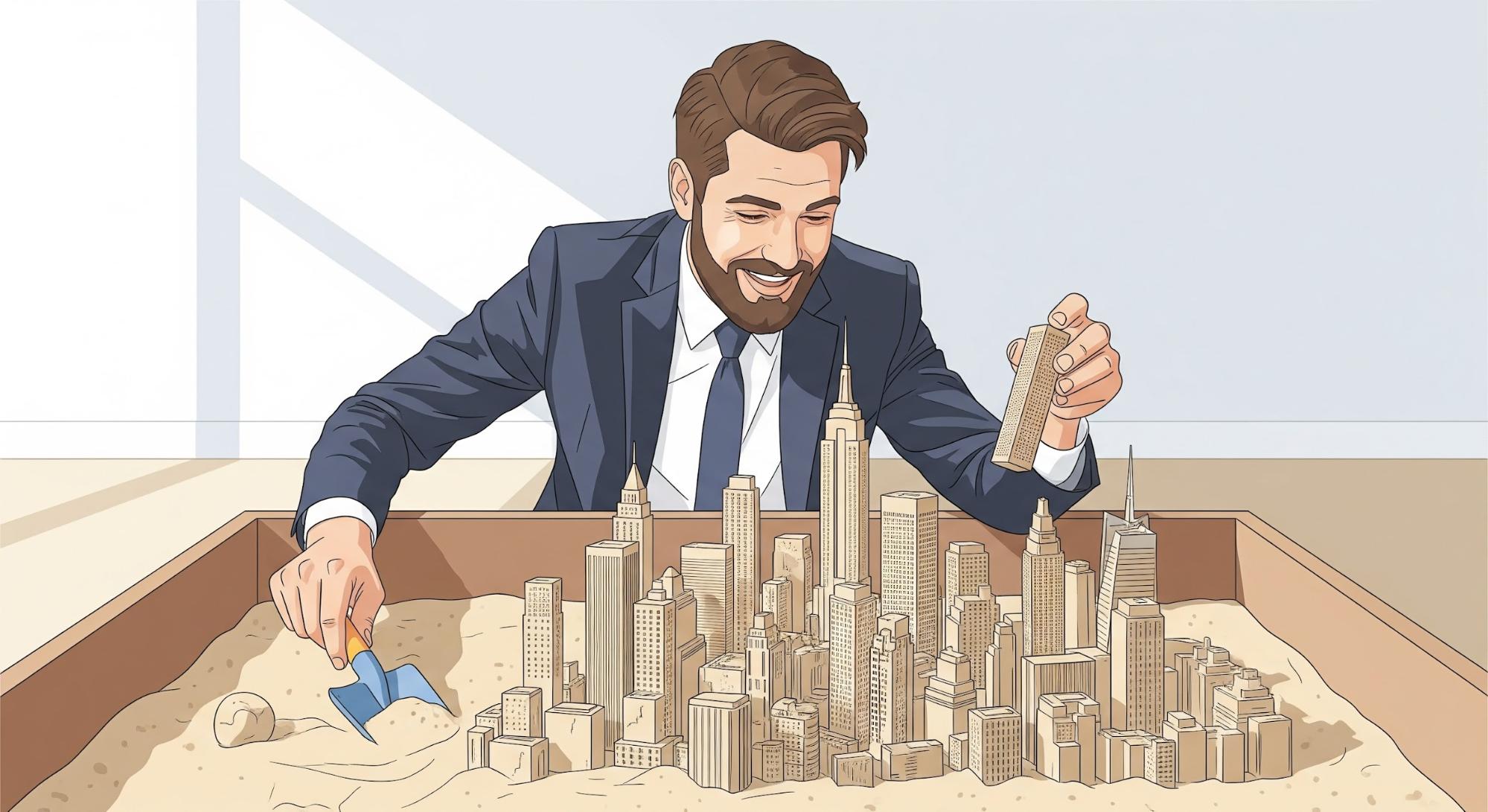
Posted November 04, 2025
By Sean Ring
The Socialist Sandbox
Today, New Yorkers head to the polls to choose their next mayor.
For once, the contest isn’t between two shades of red. It’s between a weary establishment Democrat and a self-declared socialist with a YouTube following. Assemblyman Zohran Mamdani, the 33-year-old from Astoria, Queens, represents a new kind of leftism: unapologetic, ideological, and allergic to math.
And yet, to borrow George Will’s perfectly perverse formulation, I want him to win—so that he never wins again. That may sound cruel, but it’s the purest form of empiricism. If New York wants to flirt with socialism, then by all means, let’s make it official.
Let Mamdani turn America’s biggest, most complex, and most expensive city into his laboratory. Let him try everything he’s promised. Because sometimes, the only way a society learns is through demonstration, preferably one televised in high definition.
The Socialist Sandbox
Mamdani’s campaign rests on a single, seductive promise: to make New York “affordable again.” It’s a lovely slogan—until you realize he plans to achieve it through rent freezes, free services, and taxes that would make even Lenin check his calculator. His plan is a greatest-hits album of progressive wishful thinking.
He’s called for a citywide rent freeze—no more rent hikes for stabilized units, and the construction of 200,000 new “affordable” apartments in ten years. He wants to rezone affluent neighborhoods to require inclusionary housing, strengthen tenant protections, and impose new restrictions on landlords.
But as anyone who has studied housing economics knows, rent control doesn’t solve shortages—it causes them. From Stockholm to Paris, from Berlin to NYC, every experiment in price-fixing has led to fewer new developments, deteriorating buildings, and black markets for apartments. Economists can’t agree on much, but on this they do: rent control is a disaster dressed as compassion.
Mamdani also wants to make buses entirely free of charge. In his world, the MTA’s hemorrhaging budget will somehow balance itself. Kansas City tried this. Ridership increased, but service quality declined. Tallinn, Estonia, flirted with it and quietly walked away when the math no longer worked. There’s no such thing as a free ride—someone always pays, and in this case, it’s the taxpayer.
Mamdani has promised universal childcare and pre-K, funded by his new taxes on “the rich.” The idea sounds noble—who doesn’t want parents to catch a break?—but the track record is grim. Quebec’s “universal childcare” system was overwhelmed by demand, plagued by waitlists, and chronically underfunded. Stockholm’s version became a bureaucratic maze. Even New York’s existing pre-K expansion under Bill de Blasio nearly bankrupted parts of the education budget.
Then there’s the pièce de résistance: city-owned grocery stores. One in every borough, operated by the government, to “bring down food prices.” The phrase alone is a red flag—literally. When cities dabble in retail, the results are predictable: theft, inefficiency, politics, and loss. Chicago’s 2023 attempt collapsed under the weight of its good intentions. The state-run supermarkets of Venezuela, Cuba, and the Soviet Union ended up with empty shelves and long lines. Bureaucrats make poor grocers.
And of course, someone has to pay for all this. Mamdani’s answer is simple: millionaires and corporations. He wants to soak the rich, hike business taxes, and wring Wall Street for cash. The problem is that golden geese can fly. New York has already lost about ten percent of its millionaire households since 2020. If Mamdani wins, Florida’s real-estate agents may send him flowers.
Mamdani wants to replace portions of the NYPD with a “Department of Community Safety,” staffed by social workers and therapists. In theory, this might work for minor calls. In practice, we’ve seen it fail from Portland to Minneapolis. Crime rises, response times worsen, and the same citizens who demanded reform end up begging for the old system to be reinstated.
Lastly, there’s his climate justice agenda, which includes green schoolyards, electrified buildings, and sustainable retrofits. Admirable goals, but they cost money—and New York City already has a $13 billion capital backlog. The city can’t fill potholes fast enough as it is.
Where It’s All Failed Before
Berlin’s rent controls collapsed under their own contradictions; the government reversed them after construction froze.
Free public transportation in Tallinn fizzled when subsidies outpaced revenue.
Venezuela’s “Bolivarian supermarkets” went bare within months.
France’s millionaire tax has driven its wealthiest citizens to London and Brussels; this year, London’s inheritance tax grab has prompted nearly 10,000 millionaires to relocate to places like Milan, Dubai, and the United States.
Minneapolis’s “defund the police” experiment ended with a surge in violent crime and a quiet refunding of the department.
Mamdani insists New York can do it better. But the laws of economics aren’t suspended at the Hudson River.
Why I Want Him to Win Anyway
Here’s the paradox: I want him to win precisely because I think he’ll fail. The problem with ideology is that it thrives in the abstract. When the slogans meet the spreadsheets, reality does the grading. If Mamdani loses, his ideas remain myths—untested, unblemished, endlessly romantic. But if he wins, he’ll face the one test socialists always dread: implementation.
That’s the real value here. Let Mamdani try. If he shows us whether a city already drowning in debt and bureaucracy can somehow afford free transit, childcare, and groceries without driving the rich and productive to flee for warmer, freer shores, I’ll be the first to applaud. But if he doesn’t, his loss will be educational—not just for New York, but for every American city tempted by the siren song of socialism.
Mr. Market’s Judgment
Before Mamdani finishes his experiment, the markets will move… at the speed of capital flight.
If he wins, commercial property values are likely to drop as investors hedge against higher levies and increased regulation. Upper-income households will emigrate, whether they’re blue or red voters. Municipal bond spreads will widen as risk premiums rise. Private investment will follow the same path it has for years—out of New York, and into Florida, Texas, and Tennessee.
The silver lining is that Mr. Market is a ruthless teacher. He’ll administer the lesson faster and more brutally than any election cycle ever could.
Wrap Up
Capitalism, unintentional in this case though it is, is the best teacher in the world—but it charges a steep tuition. New York may be about to pay for a crash course in economic reality for at least the second time in fifty years.
Mamdani’s socialism is seductive; it’s full of empathy, fairness, and talk of “community.” But that's the problem with socialism: it sounds great. But good intentions don’t fill budget holes, and moral passion doesn’t replace competent management.
So yes, I want Mamdani to win. Not because I believe in him, but because I believe in evidence. If he succeeds, it will be wonderful—humanity gains a model. Of course, I don’t think this will happen.
But if he fails, as I strongly suspect he will, then we’ll finally have the empirical proof that this strain of urban socialism doesn’t work—not in Berlin, Caracas, San Francisco, or New York City.
That failure, televised from the once-greatest city in the world, might save the rest of America - and maybe even some places in the rest of the world - from trying the same thing.
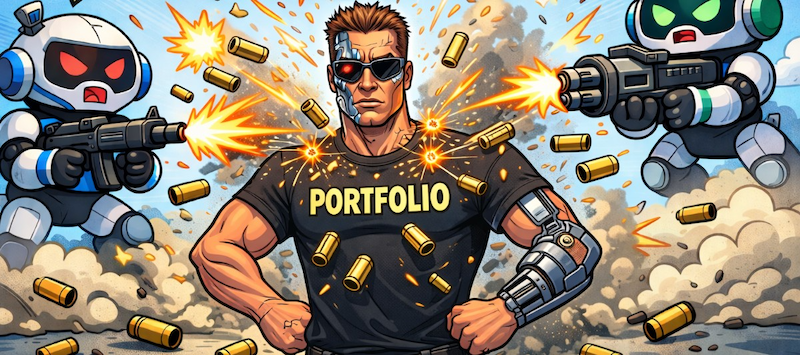
Building an AI-Proof Portfolio
Posted February 24, 2026
By Sean Ring
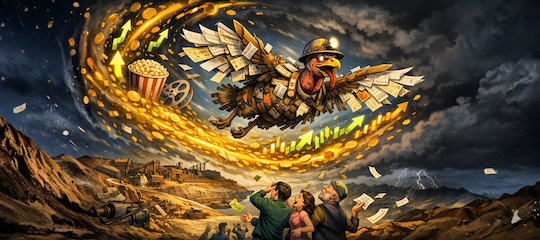
Beware of Flying Turkeys
Posted February 23, 2026
By Matt Badiali
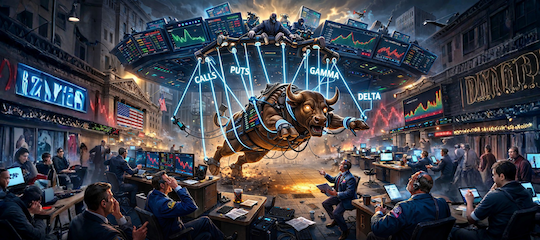
How Options Boss Stocks
Posted February 20, 2026
By Nick Riso

Investing is So Taxing!
Posted February 19, 2026
By Sean Ring
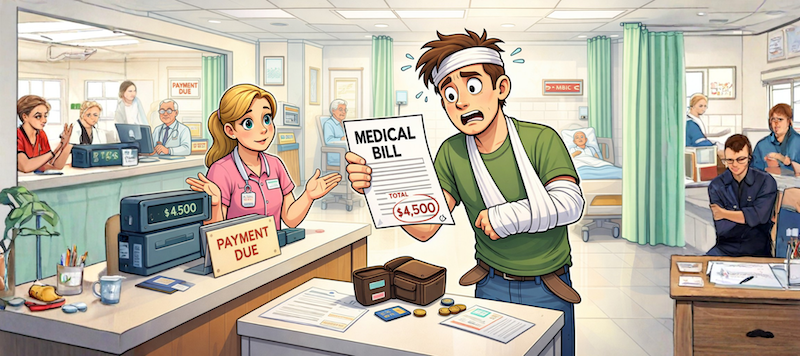
The Most Expensive Way to Go Broke
Posted February 18, 2026
By Sean Ring

